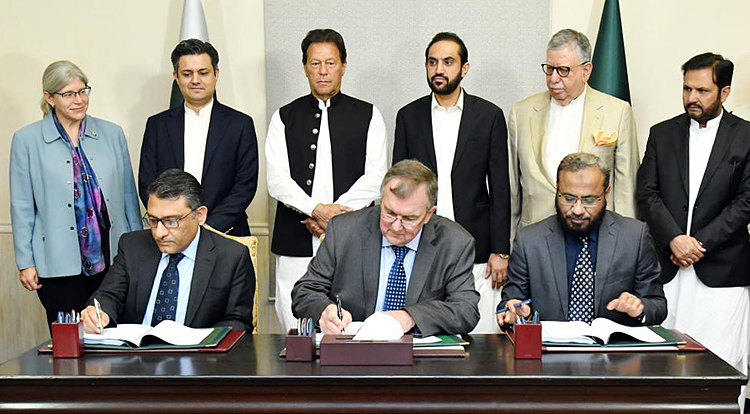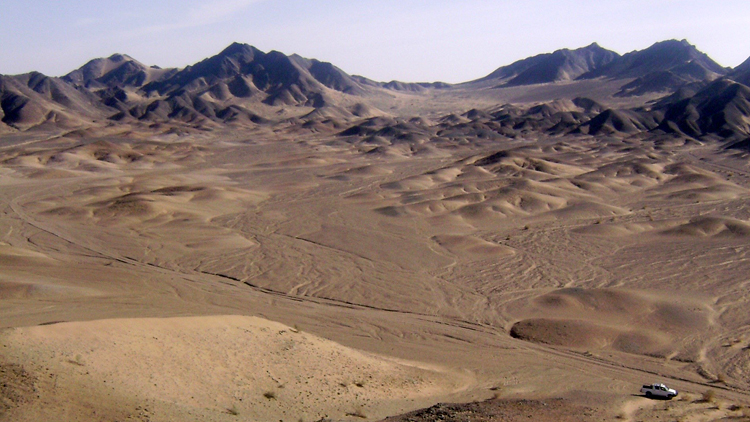INDIAN ARMED FORCES CHIEFS ON OUR RELENTLESS AND FOCUSED PUBLISHING EFFORTS

The insightful articles, inspiring narrations and analytical perspectives presented by the Editorial Team, establish an alluring connect with the reader. My compliments and best wishes to SP Guide Publications.

"Over the past 60 years, the growth of SP Guide Publications has mirrored the rising stature of Indian Navy. Its well-researched and informative magazines on Defence and Aerospace sector have served to shape an educated opinion of our military personnel, policy makers and the public alike. I wish SP's Publication team continued success, fair winds and following seas in all future endeavour!"

Since, its inception in 1964, SP Guide Publications has consistently demonstrated commitment to high-quality journalism in the aerospace and defence sectors, earning a well-deserved reputation as Asia's largest media house in this domain. I wish SP Guide Publications continued success in its pursuit of excellence.
- Operation Sindoor: Resolute yet Restrained
- India’s Operation Sindoor Sends a Clear Message to Terror and the World – ‘ZERO TOLERANCE’
- Japan and India set forth a defence cooperation consultancy framework, talks on tank and jet engines
- Terrorist Attack in Pahalgam in Kashmir: Unfolding a long surgical war against PAK
- Lt General Pratik Sharma takes over Command of Indian Army's Northern Command
Canada Mining Gold in Balochistan
Nearly $10 billion shall be invested in Balochistan, including $1 billion that shall be invested in social upliftment projects such as roads, schools and hospitals. The Gold and Copper mining project shall make Balochistan the largest recipient of foreign direct investment in Pakistan.
 |
The Author is Former Director General of Information Systems and A Special Forces Veteran, Indian Army |

On March 20, 2022, Pakistan signed a deal with a Canadian company to develop one the world's largest gold and copper mining projects in the Chagai area of its Balochistan Province. The then Prime Minister Imran Khan witnessed the signing ceremony between the Government of Pakistan and the Barrick Gold Corporation of Canada. The signing was made possible after the three-decade old Reko Diq Dispute with the Tethyan Copper Company (TCC) concerning development of copper and gold mines in Chagai area; TCC being a joint venture company of Barrick Gold of Canada and Antofagasta Minerals of Chile – both gold and copper mining leaders globally. Canada’s Barrick Gold has agreed to restart the Reko Diq gold and copper mining project in Pakistan, following 10 years of legal battles and negotiations with Pakistan.
The Reko Diq project was lingering since July 29, 1993, when BHP Minerals (BHP) and the Balochistan Development Authority (BDA) signed the Chagai Hill Exploration Joint Venture Agreement (CHEJVA). Subsequently, on November 23, 2006, the TCC bought BHP’s interests in CHEJVA for $240 million and on August 26, 2011, submitted its feasibility report and an application for mining lease which was rejected by the Licensing Authority of Pakistan.
Under the agreement signed, Canada’s Barrick Gold will own a 50 per cent stake in the reconstituted gold and copper project while the remaining 50 per cent stake will be held by Pakistan stakeholders
The TCC then filed a petitionin Pakistan’s Supreme Court on November 6, 2011 against rejection of its development license by the Pakistan’s Licensing Authority. However, after prolonged hearings the Supreme Court ruled on January 6, 2013 that the CHEJVA project is null and void.
The TCC then filed a case with the International Centre for Settlement of Investment Disputes (ICSID) – an arbitration court of the World Bank, which on July 12, 2019, gave an award of $5.894 billion plus interest of USD 7,00,000 million in damages against Pakistan to the TCC. This set alarm bell ringing in Pakistan and in August 2019, Imran Khan set up a committee to work out an out of court settlement, which has eventually led to the signing of the deal on March 20, 2022.
Pakistan’s then Finance Minister, Shaukat Tarin issued a statement on March 20, saying, “In developing the project, nearly $10 billion shall be invested in Balochistan, including $1 billion that shall be invested in social upliftment projects such as roads, schools, hospitals and creation of technical training institute for mining. The project shall make Balochistan the largest recipient of foreign direct investment in Pakistan and the Reqo Diq project shall be one of the largest copper and gold mining projects in the world.” The project is expected to create over 8,000 new jobs.
This is a unique opportunity for substantial foreign investment in the Balochistan province and will bring enormous direct and indirect benefits not only to this region but also to Pakistan for decades to come
Under the agreement signed, Canada’s Barrick Gold will own a 50 per cent stake in the reconstituted gold and copper project while the remaining 50 per cent stake will be held by Pakistan stakeholders. Of the interest to be held by Pakistani stakeholders, 10 per cent will be a free-carried, non-contributing share held by the Balochistan government, 15 per cent will be held by a special purpose company owned by the Balochistan government and 25 per cent by other federal state-owned enterprises. In accordance with this deal, the $11 billion in penalty imposed by the ICSID on Pakistan in 2019 and other liabilities are waived off.

Barrick Gold Corporation has also signed a separate in principal agreement under which the Chilean firm Antofagasta plans to exit from the mining project and will be replaced by Pakistani parties. Barrick’s President and CEO, Mark Bristow said, “This is a unique opportunity for substantial foreign investment in the Balochistan province and will bring enormous direct and indirect benefits not only to this region but also to Pakistan for decades to come. Reko Diq could also be the springboard for further exploration and other mineral discoveries along the highly prospective Tethyan Metallogenic Belt.”
Signing of this deal is perhaps a mini-bonanza for Pakistan, but it does raise certain questions as under:
- With its demonstrated insatiable global hunger for minerals, why did China not bid for this mining project after Pakistan rejected the development license of the TCC in 2011 and the Supreme Court of Pakistan ruled the CHEJVA project null and void in January 2013? After all, China is involved in copper mining in Afghanistan past several years, so why not in Pakistan?
- The expected new job creation by the Reko Diq project is 8,000 but what percentage of these will be for Pakistan and what complement will be Canadians?
- With increased attacks against the Pakistani security establishment by the Baloch Liberation Army (BLA) and BLA’s pledge to not permit plunder of mineral resources of Balochistan, who will provide security for the copper and minefields being developed? Is the Pakistani army taking on the responsibility to provide the security – as it is doing for the China-Pakistan Economic Corridor (CPEC) and allied Chinese or China-funded projects?
- On the other hand, if the Pakistan army is not taking on the responsibility for the security of the copper and gold mines to be developed by Barrick Gold Corporation, what alternate arrangements is Canada planning on? Will mercenaries be brought in garb of Canadian officials, technicians and workers – similar to western mercenaries being pumped into Ukraine?
The above is important also because Canada is a hub for Khalistani activities, including the Sikhs For Justice (SFJ). Some these radicals are known to have infiltrated or are part of the Canadian administration. The SFJ established an office in Karachi few years back under tutelage of the Pakistani military and the ISI connected them to the Chinese intelligence. Exchanges between the SFJ-ISI with the Chinese intelligence were reported during the Chinese aggression in Eastern Ladakh during 2020 and the Galwan clash. The ISI would be too happy to use these mercenaries against the BLA and TTP, as possible, but more for stoking terrorism in India.
Canada is a hub for Khalistani activities, including the Sikhs For Justice (SFJ) who established an office in Karachi few years back under tutelage of the Pakistani military and the ISI then connected them to the Chinese intelligence
After the visit of Canadian Prime Minister Justin Trudeau to India in February 2018, the National Investigation Agency (NIA) has urged the Canadian government to declare SFJ as a terrorist entity, while also agreeing to share “actionable intelligence” with the Royal Canadian Mounted Police (RCMP). Both the NIA and Canada’s National Security Information Network (a wing of the RCMP that deals with national security and terrorism) have decided to get a regular dialogue mechanism going against the pro-Khalistan groups present in Canada. However, the Canadian government has not declared the SFJ a terrorist entity and in such matters promises can hardly be taken on face value. India, therefore, must remain vigilant and keep monitoring the developments in Balochistan.





